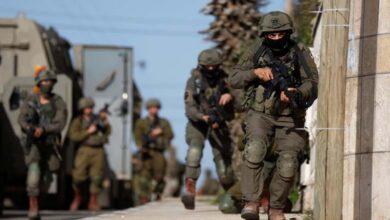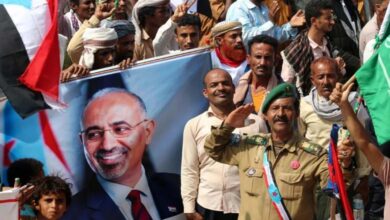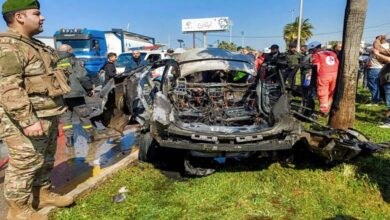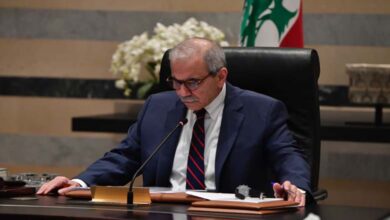Israel Prepares for War with Hezbollah as First Shell is Launched after the Deadline
The Israeli government escalates daily assassination operations against the Axis of Resistance, targeting Hezbollah's military, organizational, and field personnel in southern Lebanon and Syria
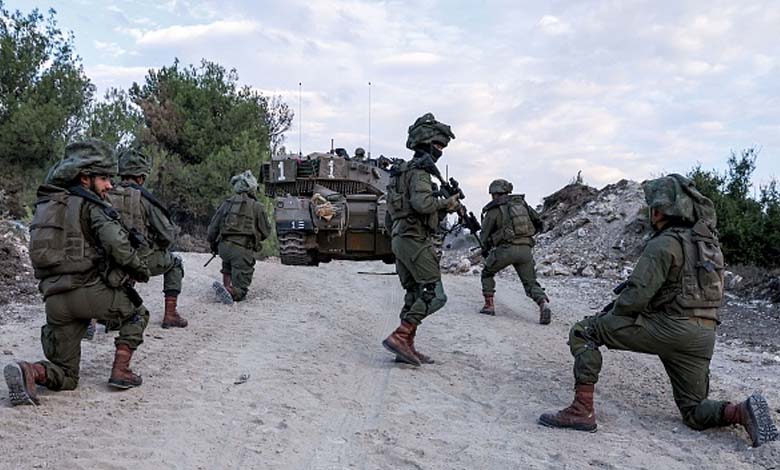
Lebanese concerns rise about the shift in the course of battles in the south and threats from the Israeli government, indicating the end of the diplomatic deadline before resorting to military action to push Hezbollah away from the borders. Israel has begun taking measures related to the home front, such as enhancing hospitals, distributing food rations to settlers, and preparing the train in Haifa to transport the wounded.
The newspaper “Yedioth Ahronoth” quoted senior officers in the northern command as saying that “a new equation must be established against Hezbollah.” The Israeli army would declare a 48-hour ceasefire, but after the first shell falls on its territory, especially if aimed at a civilian target, it would lead to intense shelling resulting in the destruction of southern Lebanon, including attacking suspicious houses in Shiite villages near the border. According to the proposal, “calm will be met with calm, but gunfire will be met with disproportionate gunfire.”
The Hebrew newspaper also added that “Israel does not exploit the fact that Hezbollah has a lot to lose during the current escalation.” According to the officers, a gradual approach should be taken in coordination with the Americans, providing a real opportunity to achieve calm at the borders through their initiative for a ceasefire while concurrently establishing a legitimate basis for an attack ultimately leading to restoring security to northern towns.
The Israeli Defense Ministry is reportedly working on a plan to accommodate around 100,000 people on the northern border who may be evacuated in the event of a potential escalation with Hezbollah.
Observers consider these indicators and developments to reflect an unprecedented seriousness and danger in the escalation at the Israeli-Lebanese border. Israeli media reported that a government meeting scheduled for Sunday was delayed because Prime Minister Benjamin Netanyahu was engaged in security consultations with the Chief of Staff and security leaders, likely related to targeting a car in southern Lebanon. Israeli media reported that Netanyahu personally oversaw the assassination operation in the town of Kfarah.
Earlier, the Chief of Staff of the Israeli army, Lt. Gen. Herzi Halevi, said that the possibilities of war on the northern front are higher than in the past. Halevi, during his visit to a reserve forces exercise in the north, stated that “the possibility of a war in the north is higher than in the past, and when it happens, we will move forward with all our strength.”
An Israeli airstrike on a residential building in the Mezzeh neighborhood of Damascus on Saturday led to the assassination of five Iranian military advisers, confirmed by the Iranian Revolutionary Guard, also announcing the assassination of Quds Force Intelligence Commander Major General Hajj Sadeq and his deputy in the raid.
A few hours later, an Israeli drone targeted a car on the road to the town of Bazouriye in southern Lebanon, the hometown of Hezbollah Secretary-General Hassan Nasrallah, causing the death of Ali Muhammad Haddaraj, a senior official in the party’s Palestinian branch, along with his companion, engineer Muhammad Baqer Diab.
Israel escalated its assassination war by targeting a Lebanese vehicle at the Kfarra-Sarbeen intersection in the Bint Jbeil district, firing a guided missile, resulting in its destruction and the burning of a nearby Rapid car. Reuters reported two Hezbollah members killed, identified as members of the Personalities Protection Unit and leaders.
Sources said that the Hezbollah member killed in the Israeli shelling on Kfarra was Fadel Sulaiman, mourned by Hezbollah later. Information also spoke of an assassination attempt on the Middle Sector Commander of Hezbollah in southern Lebanon, Fadi Sulaiman, leading to the death of his companion Fadel Sulaiman.
Later, Hezbollah announced that “in response to Israeli attacks that targeted Lebanese villages and civilians, the latest being the raid on the town of Kfarra, the Islamic Resistance fighters targeted the Avivi settlement with ballistic weapons on Sunday afternoon, causing damage to one of the houses and casualties among those inside.” Hezbollah had targeted the Roueissat al-Qarn site in the occupied Shebaa Farms and the Hanadi post with a volcano rocket.
Lebanese leaders are discussing recent border and political developments, and it is reported that the Speaker of the Parliament, Nabih Berri, is scheduled to meet with the ambassadors of the Quintet in Beirut, which includes the United States, France, Saudi Arabia, Egypt, and Qatar, to discuss developments in addition to the presidential vacuum file.








